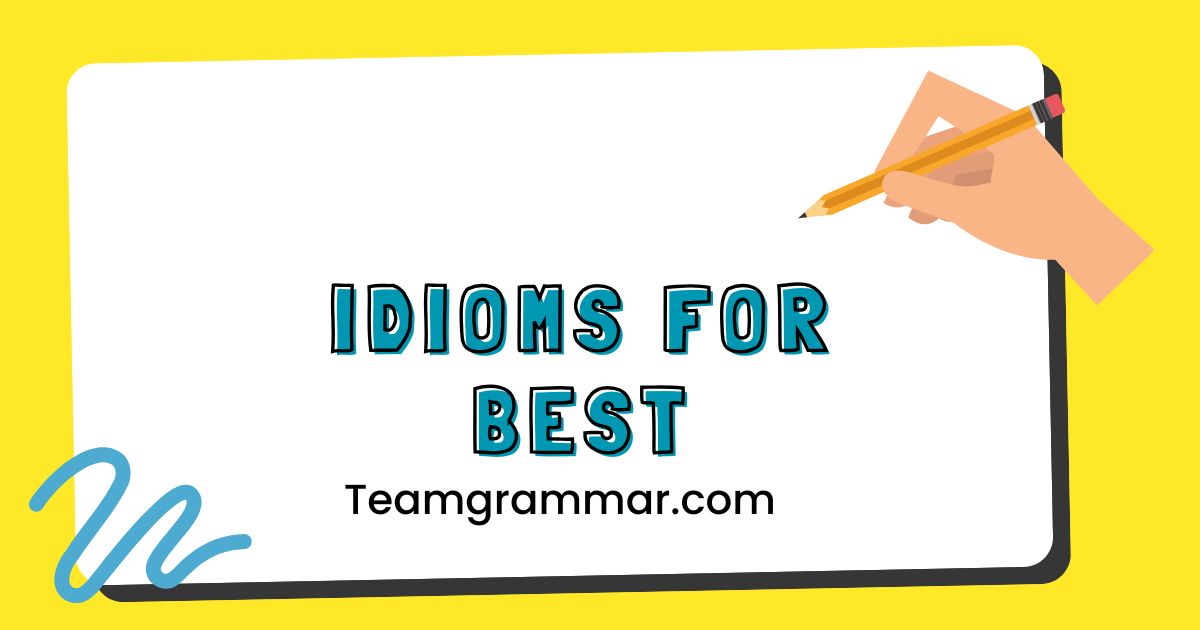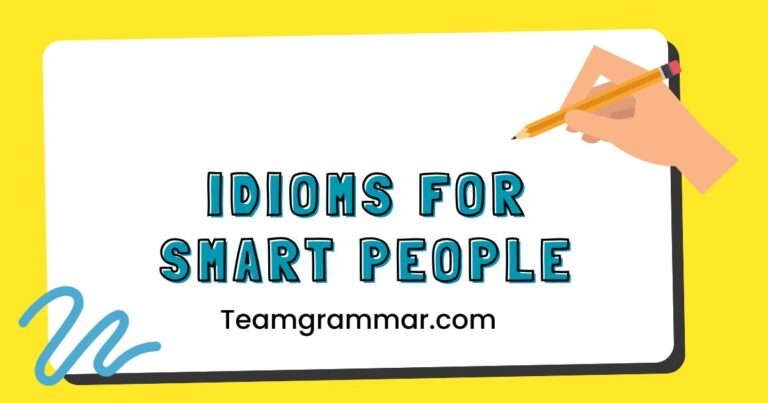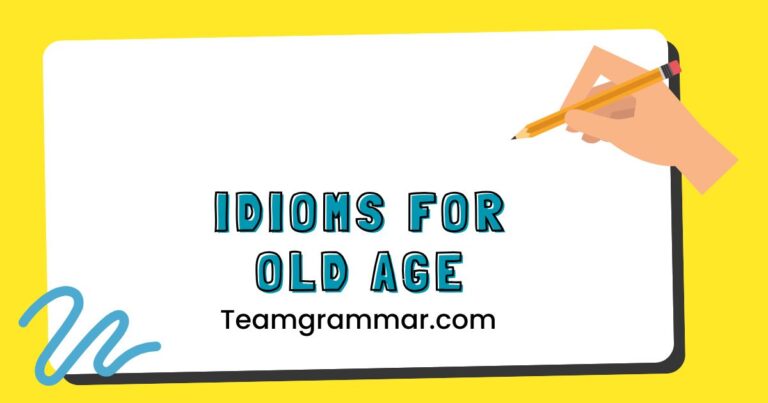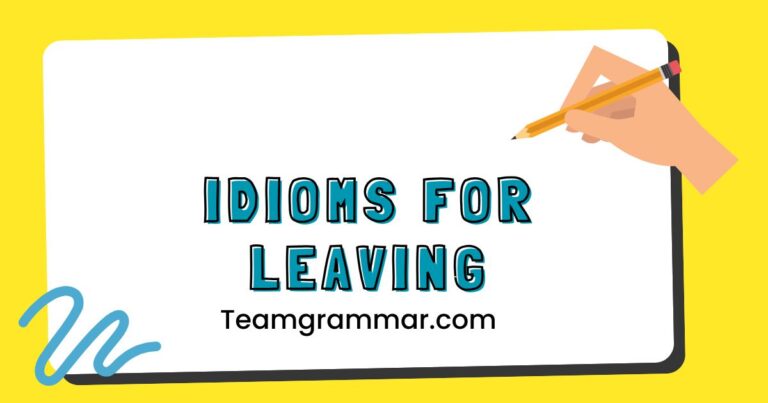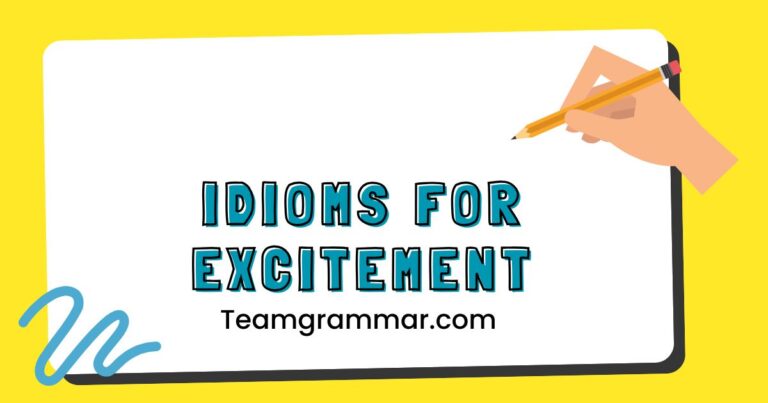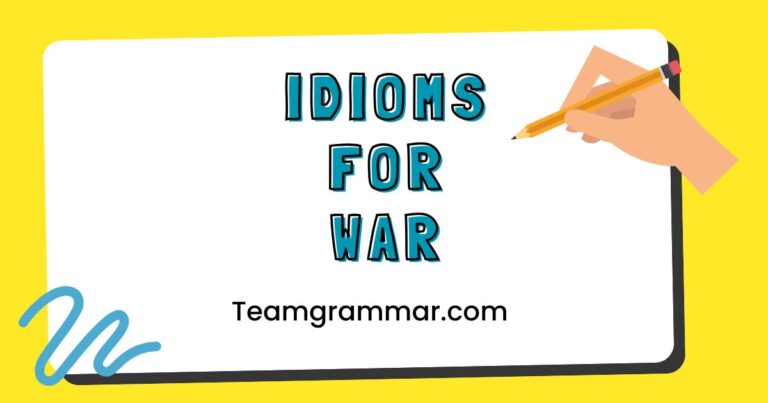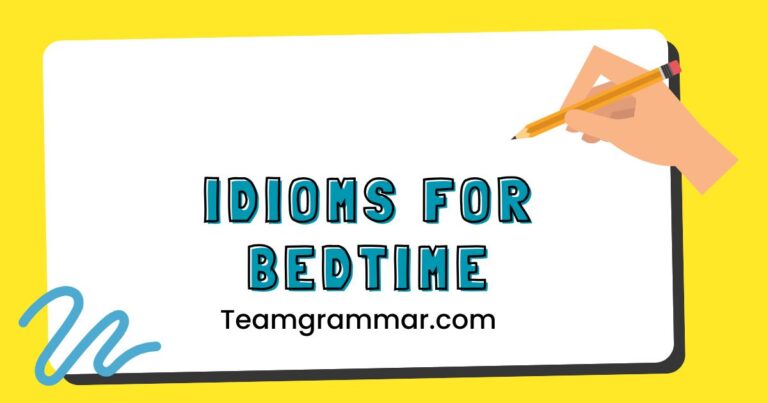35 Mastering “Best”: A Guide to Idiomatic Expressions
Idioms add color and depth to the English language, allowing speakers to convey complex meanings in concise and creative ways. Understanding idioms that incorporate the word “best” is crucial for achieving fluency and comprehending nuanced communication.
These expressions are frequently used in both spoken and written English, and mastering them will significantly enhance your ability to understand native speakers and express yourself more effectively. This guide provides a comprehensive overview of common idioms using “best,” complete with definitions, examples, and practice exercises suitable for learners of all levels.
Table of Contents
- Introduction
- Definition of Idioms with “Best”
- Structural Breakdown
- Types and Categories of Idioms with “Best”
- Examples of Idioms with “Best”
- Usage Rules for Idioms with “Best”
- Common Mistakes
- Practice Exercises
- Advanced Topics
- FAQ
- Conclusion
Definition of Idioms with “Best”
An idiom is a phrase or expression whose meaning cannot be understood from the literal meanings of its individual words. Instead, the idiom has a figurative meaning that is unique to the expression.
Idioms incorporating the word “best” typically revolve around themes of excellence, superiority, optimal performance, or taking advantage of opportunities. They are frequently used to add emphasis or color to speech and writing, providing a more engaging and relatable way to express ideas.
In the context of grammar, idioms function as single units of meaning. They are not subject to the same rules of composition as regular phrases.
For example, you cannot change the words in an idiom without altering its meaning or rendering it nonsensical. Understanding idioms is essential for mastering the nuances of the English language and for effective communication with native speakers.
The function of idioms incorporating “best” can vary. They can act as adjectives, adverbs, or even verbs, depending on the specific idiom and its context within a sentence.
Recognizing the function of an idiom helps in understanding how it modifies or complements other parts of the sentence.
Structural Breakdown
The structure of idioms with “best” can vary widely. Some idioms are simple phrases, while others are more complex clauses.
However, the key characteristic is that the meaning is not directly derivable from the individual words.
For instance, consider the idiom “at best.” Here, “at” is a preposition, and “best” is an adjective used as an adverbial modifier. Together, they form an adverbial phrase that indicates a maximum or optimistic assessment.
In contrast, an idiom like “do your best” involves a verb (“do”) and a possessive pronoun (“your”) modifying “best” as a noun, indicating the act of giving one’s maximum effort.
Understanding the grammatical roles of the words within an idiom is less important than understanding the idiom’s overall meaning. While analyzing the structure can sometimes provide clues, the primary focus should be on memorizing and recognizing the idiom as a whole unit.
The structure is more important for distinguishing between idioms with similar words but different meanings.
Types and Categories of Idioms with “Best”
Idioms with “best” can be categorized based on their underlying themes and meanings. Here are some common categories:
Expressing Excellence or Superiority
These idioms are used to indicate that something or someone is of the highest quality or standard. They often involve comparisons or superlatives to emphasize the exceptional nature of the subject.
Making the Most of a Situation
This category includes idioms that describe the act of taking full advantage of an opportunity or resource, often in challenging circumstances. These idioms highlight resourcefulness and adaptability.
Giving Your Best Effort
Idioms in this category emphasize the act of trying one’s hardest and putting forth maximum effort. They are often used to encourage or commend someone for their dedication and perseverance.
Personal Well-being and Interests
These idioms relate to personal preferences, comfort, and optimal conditions for well-being. They often describe situations where one is at their most content or comfortable.
Examples of Idioms with “Best”
Here are some examples of idioms with “best,” categorized by their meanings:
Examples Expressing Excellence
The following table lists idioms that express excellence or superiority, along with example sentences to illustrate their usage.
| Idiom | Meaning | Example Sentence |
|---|---|---|
| The best of the best | The most excellent among excellent things or people. | Only the best of the best are selected for the Olympic team. |
| Best thing since sliced bread | An innovation or development considered extremely good or useful. | This new software is the best thing since sliced bread; it has streamlined our workflow. |
| At its best | In the most favorable or excellent condition. | The garden is at its best in the springtime when all the flowers are in bloom. |
| Put your best foot forward | To make the best possible first impression. | It’s important to put your best foot forward during a job interview. |
| Best bib and tucker | One’s finest clothes. | She wore her best bib and tucker to the gala. |
| The best of both worlds | A situation where you can enjoy the advantages of two different things at the same time. | Working from home gives me the best of both worlds: a flexible schedule and a comfortable environment. |
| Get the best of someone | To defeat or outsmart someone. | His experience allowed him to get the best of his opponent in the debate. |
| The best man | The groom’s most important male friend at a wedding, who assists him during the ceremony and reception. | He was honored to be chosen as the best man at his brother’s wedding. |
| In the best light | Presented in the most favorable way. | The photographer tried to capture the model in the best light to highlight her beauty. |
| For the best | Ultimately beneficial, even if it seems difficult or unpleasant at the time. | Losing the job was difficult, but it turned out for the best because I found a better opportunity. |
| Best-laid plans | Carefully made plans that often go wrong. | Despite our best-laid plans, the weather forced us to cancel the picnic. |
| The best policy | Honesty is the most effective and beneficial approach. | In dealing with customers, honesty is always the best policy. |
| Best guess | An estimate or approximation based on the available information. | My best guess is that the project will be completed by the end of the month. |
| Best bet | The most likely or advisable course of action. | Our best bet is to take the highway to avoid traffic. |
| Best behavior | Acting in a polite and well-mannered way. | The children were on their best behavior during the formal dinner. |
| Best regards | A polite expression of goodwill in a letter or email. | Please give my best regards to your family. |
| Best wishes | A polite expression of goodwill and hope for someone’s success or happiness. | I send you my best wishes for your future endeavors. |
| Best friend | A person’s closest and most trusted friend. | She has been my best friend since childhood. |
| The best part | The most enjoyable or significant aspect of something. | The best part of the vacation was spending time with family. |
| At best | The most optimistic or favorable assessment. | At best, the project will be completed in six months. |
| Give it your best shot | To try as hard as possible. | Even if you don’t think you’ll win, give it your best shot. |
| Be at your best | To perform or appear in the most excellent or capable way. | I need to be at my best during the presentation tomorrow. |
| All the best | A general expression of goodwill and good luck. | I’m leaving for my new job, all the best to you! |
Examples of Making the Most of a Situation
This table provides idioms related to making the most of opportunities or resources, often in challenging situations.
| Idiom | Meaning | Example Sentence |
|---|---|---|
| Make the best of it | To try to be cheerful and positive in a difficult situation. | We didn’t have much money, but we made the best of it and had a wonderful vacation. |
| If you can’t beat them, join them | If you cannot defeat an opponent, it is better to join them and work together. | They kept rejecting his ideas, so he decided, “If you can’t beat them, join them,” and became part of their team. |
| Every cloud has a silver lining | Every difficult or unpleasant situation has a positive aspect. | Losing his job was tough, but every cloud has a silver lining; he started his own successful business. |
| When life gives you lemons, make lemonade | To make the best of a bad situation. | Their flight was delayed, but they decided to explore the airport, thinking, “When life gives you lemons, make lemonade.” |
Examples of Giving Your Best Effort
The following table focuses on idioms that emphasize giving one’s best effort and striving for excellence.
| Idiom | Meaning | Example Sentence |
|---|---|---|
| Do your best | To try as hard as possible. | Even if you don’t win, just do your best and be proud of your effort. |
| Give it your best shot | To try as hard as possible. | I know the exam is difficult, but just give it your best shot. |
| Go for it | To pursue a goal or opportunity with enthusiasm and determination. | You have a great idea; go for it and see what happens. |
| Leave no stone unturned | To make every possible effort to find something or solve a problem. | The detectives were determined to solve the case and left no stone unturned. |
Examples Related to Personal Well-being
This table includes idioms that relate to personal comfort, preferences, and optimal conditions for well-being.
| Idiom | Meaning | Example Sentence |
|---|---|---|
| Feeling your best | To be in optimal physical or emotional condition. | After a good night’s sleep, I was feeling my best and ready to tackle the day. |
| Look your best | To appear in the most attractive or presentable way. | She always tries to look her best when attending important events. |
| Be at your best | To perform or appear in the most excellent or capable way. | He needs to be at his best for the upcoming competition. |
Usage Rules for Idioms with “Best”
Idioms, by their very nature, have specific and inflexible usage rules. The words in an idiom cannot be altered without changing the meaning or rendering the phrase nonsensical.
It’s crucial to learn and use idioms in their exact forms.
Context is critical when using idioms. The appropriateness of an idiom depends on the situation and the intended audience.
While idioms can add color and expressiveness to communication, they should be used judiciously and with an understanding of their potential impact.
Consider the level of formality. Some idioms are more appropriate for informal conversations, while others are suitable for formal writing.
Choose idioms that align with the overall tone and style of your communication.
For example, “best bib and tucker” is quite informal and might be unsuitable for a business presentation, whereas “in the best light” is more versatile and can fit various contexts.
Pay attention to regional variations. Some idioms may be more common in certain regions or dialects of English.
Be aware of these variations and use idioms that are appropriate for your audience.
Common Mistakes
One common mistake is altering the words in an idiom. For instance, saying “do your greatest” instead of “do your best” changes the meaning and sounds unnatural.
Another mistake is misinterpreting the meaning of an idiom. Without understanding the figurative meaning, the phrase can be used incorrectly, leading to confusion or miscommunication.
Using idioms inappropriately in formal contexts is also a common error. Overusing idioms or using excessively informal idioms in professional settings can detract from the message and make the speaker appear less credible.
Here are some examples of correct and incorrect usage:
| Incorrect | Correct | Explanation |
|---|---|---|
| Do your greatest. | Do your best. | “Do your best” is the correct idiom for giving your maximum effort. |
| Make the better of it. | Make the best of it. | “Make the best of it” is the idiom for handling a difficult situation positively. |
| He is the best of all the rest. | He is the best of the best. | “The best of the best” is the established idiom for indicating the highest quality. |
| Put your good foot forward. | Put your best foot forward. | “Put your best foot forward” means to make a good first impression. |
Practice Exercises
Test your understanding of idioms with “best” with these exercises:
Exercise 1: Fill in the Blanks
Complete the following sentences with the correct idiom using “best.”
| Question | Answer |
|---|---|
| 1. Even though the situation is difficult, we need to __________. | make the best of it |
| 2. He always tries to __________ during presentations. | put his best foot forward |
| 3. The company only hires __________. | the best of the best |
| 4. __________ is to be honest in all your dealings. | The best policy |
| 5. I send you my __________ for a successful career. | best wishes |
| 6. Her __________ is her ability to communicate effectively with others. | best asset |
| 7. Their __________ was to build a strong foundation for the project before moving forward. | best bet |
| 8. I need to __________ for the upcoming competition to win. | be at my best |
| 9. Even if you don’t win, just __________ and be proud of your effort. | do your best |
| 10. After a good night’s sleep, I was __________ and ready to tackle the day. | feeling my best |
Exercise 2: Matching Idioms to Meanings
Match the idioms with their correct meanings.
| Idiom | Meaning |
|---|---|
| 1. At best | a. To try as hard as possible |
| 2. All the best | b. Ultimately beneficial, even if it seems difficult |
| 3. Do your best | c. The most optimistic or favorable assessment |
| 4. For the best | d. A general expression of goodwill and good luck |
Answers:
- 1 – c
- 2 – d
- 3 – a
- 4 – b
Exercise 3: Using Idioms in Sentences
Write a sentence using each of the following idioms:
| Idiom | Example Sentence |
|---|---|
| 1. The best of both worlds | Working remotely gives me the best of both worlds: flexibility and a comfortable environment. |
| 2. Put your best foot forward | It’s important to put your best foot forward when meeting new clients. |
| 3. Make the best of it | Even though the weather was bad, we decided to make the best of it and have fun indoors. |
| 4. Best regards | Please give my best regards to your family when you see them. |
Advanced Topics
For advanced learners, exploring the etymology and historical context of idioms with “best” can provide a deeper understanding of their meanings and usage. Researching the origins of phrases like “best bib and tucker” or “best thing since sliced bread” reveals fascinating insights into cultural values and historical events.
Another advanced topic is analyzing the use of idioms in literature and media. Examining how authors and filmmakers employ idioms with “best” to create vivid imagery, convey character traits, or develop themes can enhance your appreciation of the language’s expressive power.
Furthermore, consider the cross-cultural variations in idioms. While some idioms may have direct equivalents in other languages, others may be unique to English or have different connotations.
Understanding these cultural nuances is essential for effective communication in a global context.
FAQ
- What is the difference between an idiom and a regular phrase?
An idiom is a phrase whose meaning cannot be understood from the literal meanings of its individual words. A regular phrase, on the other hand, has a meaning that is directly derived from the words it contains.
- Can I change the words in an idiom?
No, you generally cannot change the words in an idiom without altering its meaning or rendering it nonsensical. Idioms are fixed expressions with specific word combinations.
- Are idioms used in formal writing?
Some idioms are appropriate for formal writing, while others are more suitable for informal communication. It’s important to choose idioms that align with the overall tone and style of your writing.
- How can I learn more idioms?
Read widely, listen to native speakers, and use idiom dictionaries or online resources to expand your knowledge of idioms. Pay attention to the context in which idioms are used to understand their meanings and usage.
- Why are idioms important for learning English?
Idioms are an integral part of the English language and are frequently used in both spoken and written communication. Understanding idioms is essential for achieving fluency and comprehending nuanced meanings.
- How do I know when to use an idiom?
Consider the context, audience, and level of formality. Use idioms when they enhance your communication and add color or emphasis to your message, but avoid using them excessively or inappropriately.
- What does “best bib and tucker” mean, and where does it come from?
“Best bib and tucker” refers to one’s finest clothes, typically worn for a special occasion. The origin is somewhat obscure, but “bib” likely refers to a decorative piece of cloth worn on the chest, and “tucker” refers to a lace or linen frill worn around the neckline. The phrase suggests dressing in one’s best attire, as if preparing for a formal event.
- Is it okay to use idioms in business communication?
Yes, but with caution. Some idioms are perfectly acceptable in business communication, particularly in informal settings or when building rapport. However, it’s essential to avoid overly casual or confusing idioms that might not be understood by everyone, especially in international contexts. Clarity and professionalism should always be the priority.
- Are there regional differences in the use of idioms with “best”?
Yes, some idioms with “best” may be more common or have slightly different meanings in certain regions or dialects of English. For example, an idiom used frequently in British English might be less common or understood differently in American English. Being aware of these regional variations is helpful for effective communication.
- How can I practice using idioms with “best” in my daily life?
Start by identifying a few idioms with “best” that you want to incorporate into your vocabulary. Make a conscious effort to use them in your conversations and writing. You can also create flashcards or use language learning apps to reinforce your understanding. Pay attention to how native speakers use these idioms and try to emulate their usage.
Conclusion
Mastering idioms with “best” significantly enhances your understanding and command of the English language. These expressions add color, nuance, and expressiveness to your communication, allowing you to convey complex meanings in concise and engaging ways.
By learning the definitions, usage rules, and common mistakes associated with these idioms, you can confidently incorporate them into your speech and writing.
Remember to practice regularly, pay attention to context, and be mindful of your audience. With consistent effort and a keen ear for language, you can unlock the full potential of idioms with “best” and elevate your English proficiency to new heights.
Keep exploring, keep learning, and keep striving for excellence in your language journey.

